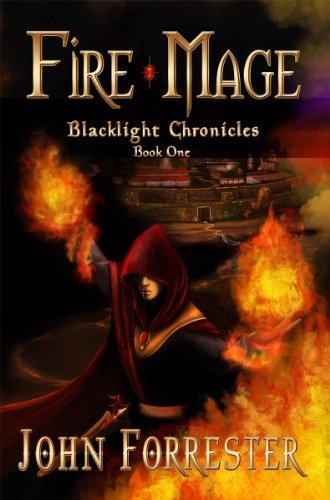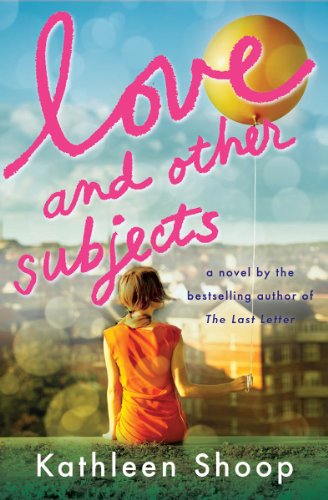The year is 1961. America has a new president, named John F. Kennedy, and a new era the newspapers are calling the Dawn of Camelot. But for ten-year-old Paul Brett, dealing with an abusive father and the immigrant gangs roaming his slum neighborhood of China Slough, America is only a small, dead-end place he is struggling to survive.
That is, until the night a mysterious stranger comes out of the darkness to his rescue, and initiates a journey–an unforgettable odyssey–beyond his wildest imagination.
From his unlikely beginnings in a brutal California migrant camp, into the darkest underbelly of a distant and unpopular war, to his final and, perhaps, most deadly struggle for survival inside the bowels of a near-medieval military prison, American Warrior follows this amazing journey of one young hero from boyhood to manhood, and from love lost, to his final and most incredible attempts to regain that love.
And here, for your reading pleasure, is our free excerpt:
Chapter One: Learning to Box
The first thing he understands is the violence.
He is sitting on the floor of his bedroom, playing with a toy soldier, when the door opens with a bang. His father, acting funny again, his mouth breathing out that funny smell again, pulls him off the floor into his rough arms and carries him into the living room. There he watches him shove back their raggedy sofa and chair and plastic coffee table, and then, happy-faced, lace the too-large boxing gloves onto his hands, telling him the same things over and over he never understood. But he stands there, the heavy gloves weighing down his small arms, watching his father pull on his own gloves, pulling the strings tight with his teeth. Next, his father begins to bounce about the floor. He wants to laugh, seeing him do that. But he knows better, and soon his father goes into his crouch, telling him to do the same—and he tries, he does try, but he just can’t get it right—as his father moves toward him, bobbing about like a cork stopper on rough water, when from nowhere he feels the sudden jarring strikes—WHAM! WHAM!—stinging his face, and he begins to cry.
That only makes it worse.
His father, bouncing across the room, shouts: “Didn’t keep that left up, did ya?”
If he’s lucky, his mother is there, grabbing him up, when the both of them argue.
“I’ll hit you instead!” his father yells.
“Hit me! Hit me!” she screams, backing away from him. “He’s too little for this. You know he’s too little.”
“He’s a damned panty-waist. I’m just toughening him up.”
“You’re hurting him.”
“Put him back down.”
“No.”
“Goddamn you, I said—put him back down!”
Sometimes they escape back to his bedroom where his mother removes the gloves and holds him close, as the unbeaten champ spouts and rages just outside the door.
Sometimes his father hits her instead. Slinging aside the gloves, there comes the familiar, sickening sound of his bare fists against her face, causing her to crumple like a sack. Then he kicks her and, at last, fearful and ashamed, slinks off to his tavern.
But usually when he teaches him how to box, his mother is away. His father waits for her to go to work, sitting there drinking, watching television. And she leaves.
*
One time they move.
He’s still very young, lying on the back seat of their car with his baby sister beside him. They drive for days, crossing the Mohave and Painted deserts with every window rolled down, the hot air roaring inside the car like an inferno. There is a seriousness to crossing those wide, empty spaces that, even as a child, he detects: the sweating canvas bag hanging from their rusty bumper like a life preserver; the threatening last road sign, warning them the nearly insurmountable distance to the next gas station; the precious nature of water, having to purchase it by the glass at those crumbling-down roadside cafes; the sound of the tiny ice cubes against the glass in the motionless, one-hundred-and-ten-degree shade.
In California his father finds them a funny place to live. It’s called China Slough, named after a mile or so of murky backwater, and along which a small resort camp had been built years before. In the beginning, the elevated, freshly painted white and green-trim cabins were the weekend retreat of well-to-do white families from San Francisco. They would drive up in their long shiny cars on Friday evenings and grill steaks on the raised iron pits beside each cabin; then Saturday mornings go sailing down the slough into the river and bay, returning to the city after their Sunday brunch.
Now the families filling the rickety, paint-blistered cabins stay there all the time and drive heaps, according to his father. And each day he sits on his sagging porch and watches the heaps go chugging past, or watches the men, speaking those quick, excited words he doesn’t understand, working next door on their heaps. There are heaps everywhere; some abandoned, rising halfway upon the few old iron pits remaining, as if they had tried and failed to rise to some expectant destination; other heaps lie scattered about in pieces, seeming forlorn and resigned to the weeds and flood-moss covering them over.
It’s summer when they arrive and his father warns him about the dizzy riot of other children running through the camp.
“Don’t you go near them,” he tells him.
So Paul stays home, in his room or on the porch or (his favorite place) beneath the cabin. There he lies on the cool moist earth, playing with his handful of dog-chewed soldiers and listens to his parents argue through the overhead floor. From that hideaway he looks out, undetected, pretending to watch and wait for the enemy. It all seems so complicated, but, after a while, listening to his father and observing, he begins to figure it out. The Mexicans, it seemed, looked down on the blacks; the blacks, in turn, looked down on the Filipinos; the Filipinos then had no choice but to look down on the smattering of white trash, as himself.
“Them Filipinos will kick your ass, boy—don’t you be playing with them,” his father warns him, before getting himself all loaded up. “Don’t you go near them, you hear me?”
Instead, one day one of them comes to him. He’s lying under the cabin when he hears a noise. He looks up and another boy is making his way toward him through the wooden supports. He sits up as the boy arrives and squats before him, staring at him, then down at his miserable assemblage of plastic soldiers. He thinks the boy is about his age but bigger. His long black hair is combed back wet, reminding him of an Indian, and his dark-brown eyes stare out at Paul’s own kitchen-cut blond hair and blue eyes, when his hand suddenly sweeps forward, knocking over the soldiers. Then he shoves his chest, pushing him backward to the ground, and turns away, making his way slowly back through the framework, until he’s gone.
*
When school begins, this same boy is in his class. He sits behind him and pokes him with his pencil, saying nothing. He learns his name is Bobby Cabral, and one day during recess Bobby comes up to him with some other boys and says, “So where you come from?”
“China Slough.”
“Before that, stupid. I know you from China Slough.”
He thinks about it. “I can’t remember. From somewhere over the deserts.”
“What deserts?”
“I can’t remember.”
“You one stupid white boy.” He turns to the others. “Maybe we’ll kick his ass now.”
They all nod.
Bobby looks back at him. “Maybe later.”
Paul watches them all walking away.
After that they become buddies. There’s Bobby, of course, who’s the biggest among them; then there’s Frankie Mendez, who’s a year older than Bobby and knows about things; and Joey Petri who’s happy he’s no longer the smallest. And now there’s himself, little Paul, who, the others always tell him, they don’t want around ‘cause he’s white and stupid and too damn small.
“We fight them Vallejo niggers—what ‘choo gonna do?” Bobby confronts him one day on the playground.
“I’ll fight.”
“Shit—them Vallejo niggers gonna kick your stupid white ass. Even your mama call you little.”
He hangs his head in shame.
“He may as well stay with us,” Bobby reluctantly tells the others. “He by himself, them Vallejo niggers gonna kick his dumb white ass.”
And the others nod.
After school they turn in pop bottles at the old resort clubhouse, which is now a grocery-bar and pool hall, to buy Sugar Daddies and cream sodas. Afterward, they crawl beneath one cabin or another and listen through the floor to what’s happening above. Usually there’s talking, and the others translate to Paul what’s being said. More often a fight is in progress. The others know the best cabins for fighting and bring him there to listen. But before long they notice the fighting bothers him, and finally they just hang around the talkers instead. One day they bring him to a cabin at the end of a muddy street.
“Maria Hernandez live here,” Bobby tells him, grinning.
“Who’s she?”
“You just wait.”
They all lie there, sucking on the Sugar Daddies and sipping the cream sodas, until an old car drives up, and the man driving it goes inside the cabin. Before long, through the floor above them, they hear the squeaking bed springs and the moaning. It’s a woman moaning and soon she’s yelling something in Spanish and the bed springs creak even louder, the metal legs scraping across the floor, heaving it up and down with the thrusting above it, as if the whole thing would collapse down on them.
“Are they fighting?” Paul asks, watching the floor and listening to the woman’s cries.
“Naw,” Frankie Mendez tells him nonchalantly, “they’re just screwing.”
“What’s that?”
“You know—fucking.” And the word seems to slither deliciously away through the wooden supports and then crawl—belly-down along the ground—toward the muddy slough. “That’s when he puts his thing inside her and she starts yelling. Women like that stuff.”
They all listen until the floor stops heaving and there’s silence overhead. After a while, the man leaves the house, gets back into his car and drives away. They watch the old car, splashing off through the mud puddles, as they pick caramel from their teeth.
*
The following year Bobby moves away to the city. He comes over to see Paul one last time, shoving him away as he stands there, saying, “You too damn little, anyway.”
Then he was gone.
Not long after, border patrol vans move through China Slough one morning before daylight, and when Paul goes to school that day both Frankie and Joey are gone. The following month Joey is back, but he hangs around other boys now. These are boys from the city, who speak no English at all, and stare at him darkly on the playground. His school is called Carneros los Amigos, and Paul’s pasty complexion and hair the color of sun-burnt straw stand out in stark contrast to the multitudinous sea of brown, surrounding him.
One day during recess they jump him out by the ball field, dragging him behind the backstop where they punch and kick him. One boy rubs an old piece of rough burlap across his eyes as he screams. Lying there, he feels someone fumbling with his zipper, pulling down his pants, feeling their hands touching and squeezing him. Different hands are on him. Afterward, they all run away. And when he finally sits up he sees the close faces of the girls pressed against the backstop wire mesh. They giggle and whisper to each other as he zips up his pants and walks slowly back to the school.
After that he just stays beneath the protective canopy over the sidewalk, watching the others playing and wondering where Bobby lives in the city.
One morning his father brings him there, to the city, to meet one of his old Navy buddies at a tavern. Inside, it’s dark and smelly and filled with people. Everyone seems oddly excited to be there, and he moves closer to his father as a fat woman, scary with her black and red-smeared face, lunges toward him from out of the smoky air.
“C’mere—goddamnit!” she bellows coarsely, before plopping hard back onto her seat.
Other women squeeze and pinch him, pulling his soft hair and trying to smooch their lips on him. He wants to leave, but his father is enjoying himself; so he contents himself by scrunching into a corner and watching a man and woman, scrunched back into their own dark corner—her scrawny arm and legs wrapped about him, and her face thrown back in awful pain, while his exposed bottom pushes her again and again into the tangle of mop and broom handles and dustpan, until they clatter, noiseless in the din, down among their rigid legs and dangling feet.
Fucking, he realizes, looking away.
*
That’s also the day, in the fading afternoon, his father brings him out to the junker along the railroad tracks and pays two dollars for a selection of bicycle parts. These they bring back to their little cabin in China Slough and work late into the night, piecing them together. It was the day before his eighth birthday they did that, and the next morning he rides the resultant contraption wobbly through the muddy streets, with it squeaking and the tires rubbing the fenders. And he wonders what each part had looked like new. And who were all the boys that had owned each new bicycle? Then he rides around the grocery-bar and out into the wide lot before the highway. There he stops and looks down it—the only road out of China Slough. It seemed like it would stretch around the entire world if only he could peddle that far. At least, it went to places he could only imagine. And it beckons him as a luring stranger holding open a bag of delicious treats. That is the first moment he ever felt such things beyond his small life. He could go and do incredible things. Wonderful things. All on his two-buck bike.
So the following week, clutching the shred of newspaper ad, he rides over to an old row of warehouses beyond the railroad tracks. He goes into one of the cluttered offices where a man sits behind the desk, talking with another man and some older boys sitting before him. They all look at him as he stands there, shamefaced, saying, “I come about the paper route.”
You could have heard a mouse’s tail dragging through the dust as the man looks at him and says, “Pick that bundle up and set it on top of the others.”
Paul looks down at the wired stack of newspapers on the floor. He walks over, slipping his hands beneath, and lifts. The wire cuts into his fingers as he half-drags the bundle over to the stack of other bundles. With a grunt he begins pulling it up the long side, struggling with the heavy awkwardness of it, until—before he knows—the bundle shifts, the wire slicing like a hot knife into his flesh, and he releases it.
Everyone stares at him, and he sees the smirks on the boys’ faces.
“Come back next year,” the man tells him, and they turn away, laughing and talking among themselves again.
Paul stands there, afraid he’ll cry, feeling the tears burning his eyes. His entire body trembles as he looks at them, already having forgotten him. He would cry, he knows, if he went out of there. He would cry all the way home on his new-old bicycle. Then he would sneak into his bedroom and cry, pushing his face tightly against his pillow and bed. He knows that. When suddenly he’s reaching down, grabbing the sides of the bundle and lifting, one hand slipping beneath. He does cry out as it rises above him, and everyone turns to see him flinging it atop the stack. Now he stands there, his small chest heaving, looking back into all their eyes and saying, “I’ve come for the route.”
The man hesitates, looking into his eyes, before finally saying, “All right, boy. Then I guess you’ve got it.”
Chapter Two: Library under the Bridge
His first week he discovers an old dead woman lying stretched across her front living-room floor, hand extended toward a telephone on her nearby coffee table. With three newspapers still lying on her porch, he knocks at her door to see what he should do, when he sees something through the glass. Then, when he puts his face forward to peer through the crocheted curtains, he smells her.
There is the old man who chases him, pointing his shotgun, threatening to shoot him if he “bushes” his papers like the last boy did. Another man knocks the collection bag from his hands, spilling coins through the open cracks of his wood-plank porch, because of the two-bit subscription increase. There’s the woman, whose husband and daughter were killed in a car accident the previous year, who makes him iced tea and then looks stricken when he first politely refuses, but whose sad face fills with radiance when he leans his bike against her fence and sits down on her porch to talk awhile. And the old codger who waits for him each day with the un-extinguished excitement of his youth, when they sit together, reading Alley Oop like gospel. There are some he rarely, if ever, sees, like the queer old man who leaves his subscription money in an envelope tucked inside his screen door, and others who wave to him every evening, doing exactly the same thing—watering the lawn, picking weeds, sitting on their front porch—they would be doing the next evening.
His route is the forgotten, isolated tail of a subdivision called Rolling Hills Estates; although, as he curiously notes, the seemingly endless rows of identical, small brick houses sit on land flat as the deserts he had once crossed. Likewise, there is barely a handful of spindly trees, hardly worth their cup of salty water, scattered along Forest Glen, the main thoroughfare. They are all poor people who live there, mostly hard-working laborers from the nearby shipyard and retirees, none of whom could afford to escape when the edges of the city began, a decade before, creeping toward them.
To get there he is made to cross through a shantytown, originally called Camp Beechum, which was built for the flood of shipyard workers during World War II. Now it was called Las Chozas and filled with immigrants even more destitute than lived in China Slough. He is glad no one there takes the paper and rides quickly through streets littered with broken glass and every sort of debris; frothy-mouthed dogs racing at him from the side, followed by hordes of children, running after him on their spindly legs and shouting: “Hey—chilito! Joto!” and throwing at him whatever they pick up from the streets. Each day he goes a different route and, returning, waits until dark to go back across.
Beyond the Rolling Hills subdivision is Miller Bend, a neighborhood project of brick apartments originally built for young homeowners and lower-income families. Then the government subsidies appeared, and once the first poor black family arrived, the exodus began and was complete in less than two years. Paul delivers to two customers there. One is a young black lawyer named Mr. Potter who had grown up in Miller Bend and tells Paul he would never leave. And he always kids him about buying his bicycle off of him.
“That’s sure a nice bike,” he says, laughing merrily and winking.
The other is elderly Mrs. Crawford, who is thin and always dressed elegantly in white silk and pearls, sitting on her porch and nodding to everyone passing by. And at least once a week she tells him how she had once worked for the Whitmores of San Francisco.
“Do you know the Whitmores?” she asks, opening up her newspaper and carefully spreading out its fresh crispness upon her dainty lap.
He always tells her he doesn’t.
The last paper he delivers is beyond Miller Bend. There the road winds down the hillside and dead-ends along the strait which floods into San Pablo Bay. Overhead, the bridge towers stretch toward the distant shore where a sugar plant stands, spewing smoke out its tall black stacks. Beneath the bridge is a small blue wood-frame building he thought was someone’s home the first time the distributor drove him about in his car, showing him the route.
“Miller Bend Branch Library,” the distributor says instead. “C’mon, I’ll introduce you to Ms. Maude, the librarian.”
Inside, books cover all the walls and fill rows of racks in between. He stands there, holding the newspaper in his hand and looking around. The distributor is talking with a lady sitting behind a small desk, and he calls him over.
“Paul, this is Ms. Maude. Ms. Maude, this is Paul Brett, your new paperboy. Paul lives way over in China Slough.”
Smiling, she holds out her hand and Paul shakes it.
“My,” she says, “you’ll ride all that way each day just to bring me the Evening Herald.”
“Yes, ma’am,” he says, blushing. She’s a very pretty black lady, slender, with skin the color of a copper penny, and eyes the color of new ivy.
“Well, I’ll be waiting with anticipation each and every day, Paul.”
He doesn’t understand what that means, but nods and hands her the paper.
And every evening after that he looks forward to finishing his route at the little blue library under the bridge. Sometimes Ms. Maude is busy with customers, and he only sets the paper down and leaves; other times she would be sitting there, working, when he arrives, and she talks with him. She asks him about his family and he lies, telling her his father is a welder at the shipyard, and how he always takes him fishing on weekends. Which were not complete lies. His father had been a welder in the beginning, before he was fired for his drinking. And although he had never taken him fishing, there were some old poles the former tenants had left behind, thrown in the back of the garage beside their cabin.
One day he asks her about the tiny, brass-framed picture of a man on her desk. And she looks deeply into his eyes and says, “That was my husband, Paul. His name was Harold. Unfortunately, he died in the frozen mud of Korea.”
The way she said this made him sorry he had asked her. Thinking of nothing else to say, he asks, “Do you have any children?”
She lowers her head, shaking it, and her wavy black hair covers the side of her face. “He was sent overseas not long after we were married.” She looks up at him then, almost as if he had done something wrong. “We tried to start a family before he left, but it didn’t work out. Then he went away.”
At that moment two old women enter the library, carrying books. “I guess I’ll see you tomorrow, Ms. Maude,” he tells her. But she doesn’t look at him now or say anything, and he goes quietly away.
Another evening she is busy, and he wanders deeper into the library, staring up at the books. He pulls one from the shelf and looks at it. He puts it back and takes down another one. It was some sort of history book, and he’s trying to read it when he hears something and turns. She’s standing there, watching him, and he says, “I was just looking.”
“That’s what they’re here for. Would you like me to make you a card so you can take some home?”
He thinks about it and shakes his head.
He sees the way she’s looking at him. “You know, you’ve never told me if you like to read.”
“I love reading,” he says before realizing. “But—”
“But what?”
He puts the book back on the shelf. “I’ve got to go, Ms. Maude.”
He brushes past her so close he can smell her lilac perfume and leaves the library. Riding home he tries to forget how angry his father became anytime he caught him reading. “Goddamn disease,” he called it and once smacked him completely away from the table for reading the cereal box. Of course, he was forced to make an exception for schoolbooks, and Paul had read his California history book and his health book and his primer so often he was able to recite whole paragraphs to himself while throwing his papers. But he knows if his father caught him with any library books—that would be it. He might even make him give up his route, Paul realizes, except then he wouldn’t be able to bum money off him anymore. Still, he didn’t want to take the chance.
After that he begins to hang around the library in the evening. It gives him something to do, waiting for darkness to arrive when he could go back across Las Chozas. Ms. Maude lets him sit there and read whatever he wants. He reads for a while and then stops and looks at the other people wandering back and forth, or watches Mary placing books back on the shelves. Mary is the retarded black girl who rolls her cart up and down the aisles, putting back all the books that everyone else had removed. She always looks at Paul when she rolls past him, and he always holds tightly to his book because she looks like she would take it from him and re-shelve it. But she only goes on past him, humming to herself, and finally he goes on reading.
One evening he makes a discovery. He is working his way slowly back along the shelves, reaching the farthest point of the room from the entrance, when he randomly pulls a large picture book from the shelf and opens it. Suddenly a strange sensation sweeps into his head, then down, chillingly, through his entire body, raising goose bumps on his skin. He stares at the picture and swallows. It’s some sort of building. But there were no sides to it. It was all open, the remains of the roof being held up by rows of big posts. It looks old to him and ready to tumble down. Yet there is something about the way it looks, how it sits on the hillside, as if it had grown up out of the hill and now sits there taking up its own space, forever. The inscription below it reads: The Parthenon, in Athens, is a wonderful example of Doric architecture.
He sits in a chair in the corner and looks at all the pictures in the book. They are all of this thing called architecture, and they have all been made by men called architects. There are pictures of the men and the buildings they had made, and he’s taken with all of it—the way it looks, the notion that such things are possible. People did things like this. They just did them, that was all. He had never realized that before. No one had ever told him that. He holds the book close to his chest and closes his eyes. When he opens them, Ms. Maude is standing there, looking down at him with that smile on her face she sometimes had that he could never figure out.
She says, “I didn’t know you were interested in architecture, Paul.”
“I just read about it,” he answers, closing the book.
She kneels down before him, her hand suddenly resting upon his leg. “Do you know my Harold wanted to be an architect?”
Paul barely shakes his head.
“He was going back to school when he finished his military service. Then he was killed in Korea. I told you that. According to the letter I received, he stepped on a land mine buried in the frozen mud and he died.” She stares into his eyes. “Do you understand how momentary our lives are, Paul? How important it is to do the things we must do while we still can? Do you understand that?”
He swallows. “I guess so.”
Now her other hand touches his hand pressed against the back binding of the book. He feels the heat passing from her fingers, all the way up through his body to his head. His head feels hot and all swimming as he looks at her, hearing her whisper, “You must always try to do what you really want to do in life. It’s so important. My Harold didn’t want to go away. We both cried, in fact, the night before he left. We lay in bed together, holding each other, and cried and cried.”
He glances past her. He wonders if anyone else is in the library. He can’t hear anyone—not even Mary, who sometimes left early. There isn’t a sound, besides Ms. Maude’s sighing. There is no movement beyond the flicker of her large ivy-green eyes staring out at him; while the both of them remained motionless there, unseen in the far corner of the room. Now he watches her pull his hand away from the back of the book, pulling it slowly toward her face, with her eyes looking into his eyes, himself unable to do anything but sit there, unmoving. He sees her kiss the back of his hand softly, so softly he barely feels her lips touch his skin, then turn it around, opening it up and pressing it fully against the side of her face. Her eyes close then, and he sees the dull shine of a single tear rolling over the edge of his finger and falling silently upon the grass stain smeared into one knee of his jeans.
“I’m sorry, Ms. Maude,” he hoarsely whispers, thinking he’s never seen anything so pretty or sad as her face at that moment.
At the sound of his voice she lets his hand go and stands up, smoothing out her skirt, her eyes now avoiding his own. “You should go home, Paul. It’s time to close the library for the evening.”
“Yes, ma’am.”
Riding home that night, his legs pumping furiously against the pedals, he feels hard again the wonderful chilling swoon of discovering architecture, mixing with the raw burning heat from her fingers touching him, and her face, soft and warm and comforting as a pillow. After that, they would always be mixed so: the hot and the cold and the aching feeling, inside him, throbbing and swelling up under its own mysterious, unknowing guise.
The next two evenings when he drops the paper off, Ms. Maude is busy, and he quickly leaves. The third evening he hands it to Mary, just inside the door, saying, “Don’t shelve this, Mary.”
And she sticks out her tongue at him.
The fourth evening, Ms. Maude catches him. He sets the paper down and is leaving when she calls to him from somewhere in the back: “Paul, please wait.” He stands there, awkwardly looking around himself, when she appears from behind the rack of books and comes toward him. She seems nervous herself as she sits down behind her desk and reaches down and pulls out a bag from beneath it, sliding it across to him.
“This is for you, Paul. Since you won’t check out any books, I’ve bought you one to take home.” She smiles. “Of course, that doesn’t mean you still can’t read here if you want.” Then she stands up and goes off to another part of the room.
He looks inside the bag and sees the same big beautiful book about architecture. Slowly, he pulls it out and opens the cover, crackling with newness. There he sees written: Paul, you must remember, when you want something in life, you really want it, then you go forward and you get it. Because nothing else will do. Love always, Maude. And he looks across the room to where she had disappeared.
That night, after he falls asleep with the book beside him, he dreams of being with Ms. Maude. They are together somewhere—a hidden room, or deep in a dark forest, or floating high off in the fluffy clouds—he’s not sure. But she’s holding him tightly to her and kissing him, not like at the library where her trembling lips had pecked about his scrubby fingers, and certainly not like any grownup had ever kissed him before. She was really kissing him now. He feels her lips pressed against his own, can actually taste her now and really smell her skin and feel her fingers against his back, holding him so tightly to her he wants to scream and cry at the same time, his heart beating like a terrible drum inside him, when suddenly a feeling comes over him in rapturous waves, and he wakes up.
He lies there feeling hotly ashamed at the mess he’s made, until he rises up, slipping into the bathroom to clean himself. Afterward, he can only lie there, holding the book against him, thinking about Ms. Maude; how he couldn’t wait to see her again, and wondering how she would act toward him. What had she been trying to tell him? Did she really like him? And what would she do next? What would either of them do now? What could they do? And he lies there, nearly in a pant, clutching the book; until he drifts into such a deep wonderful sleep he’s late for school the next morning.
It’s not until the following afternoon, when he rushes over to bag his papers, that he realizes it was collection day. On every boy’s stack is the empty, zippered satchel and receipt book. Everyone collected with the last Friday’s delivery. Then whatever you missed you picked up over your weekend, returning the satchels stuffed with cash and checks on Monday afternoon. Collection day, he knows, always went slow, but that afternoon is far worse. The entire ordeal seems to unravel in minute bits of motion, as he hands each customer their paper and takes their money, putting it in the satchel, and writes out their receipt. Of course, everyone wants to talk with him, telling him their views on the weather and the latest neighborhood gossip and whether or not that young Catholic, Kennedy, will make a good president. He doesn’t care about it, he thinks. He doesn’t care about any of it. Why couldn’t everyone have sore throats that day, or not be in the mood for talking, or something. Even the queer old man who always leaves his collection money in an envelope tucked in his screen wants to talk.
“Stop my paper, boy,” he tells him gruffly through the screen, and then opens it to hand him the dollar bills. “I don’t read the damned thing anyway.”
Until, by the time he reaches Miller Bend, he knows he’s going to explode as Mr. Potter leisurely jokes with him. “I still want that bike of yours,” he says, chuckling.
Finally, there’s only Mrs. Crawford to get through.
“Do you know the Whitmores?” she asks him, holding her subscription money aloft in one hand.
And he just can’t take it anymore. “Yes,” he says. “And I don’t like them at all. They’re just stupid rich people, like all the other stupid rich people, who go through life doing exactly what they don’t want to do.”
“Oh, my,” says Mrs. Crawford, handing him the money.
“I’m sorry but I’m late,” he says, running back to his bike.
It’s dusk by the time he pulls up before the library, his hands trembling, and his throat so parched he can barely swallow. Carefully, he carries the newspaper inside. There, an unsmiling, gray-haired librarian takes it from him without a word.
He stands there, feeling lost and confused. “Where’s Ms. Maude?”
“She took leave,” the lady tells him. “They asked me to come off retirement to cover. I hope she’s not gone long. I have things to do. I have other responsibilities.”
He whispers, “But—how long?”
“I told you I don’t know. But I have things to do. After all, I am retired.”
She says something else, but Paul is not listening. As he leaves the library he sees Mary pushing her cart. She looks over at him, her face awash in sadness, as if he could do something about their shared predicament. But he only lowers his head and goes out the door.
After that, he hardly realizes what he’s doing, peddling his bike slowly back to China Slough. Halfway through Miller Bend he begins to cry and can’t stop. He can’t believe she just went away like that. She just left, saying nothing. She was gone, was all he could think. She was really gone.
Not far inside Las Chozas his handlebars are nearly jerked from his hands as an awful hissing noise fills the air. He gets off the bike and looks at the slit in the tire, then back at the jagged pieces of broken bottles he had just ridden through.
“Damn!” he says aloud and looks around himself. He wonders what he should do. He looks down the dim street, which winds like a bumpy-backed snake through the shantytown, and sees the shadowy faces already gathering, peering back at him. Then, through the falling darkness, he dimly sees the two dogs running toward him, and he turns and begins pushing his bike back toward the subdivision he had just left. There is a grassy, litter-strewn median dividing the two residential areas, and he is less than a block away when the dogs catch up with him.
Instinctively, he pulls his bike between himself and the dogs, snarling and lunging at the tires. Just behind him is an abandoned warehouse and he half-stumbles back toward it, dragging along his bike, keeping it between the dogs and himself. Pushing against it, he begins to edge toward the median. In the last moments of twilight he can see the dogs’ white teeth and their foamy saliva as they rip at his tires. At that moment, one grabs the rear tire and begins jerking it, nearly pulling the bike from his hands; meanwhile, the other comes around the front of the bike blocking his escape, and Paul begins kicking at it as hard as he can.
“Help!” he hollers. “Help me!” As he kicks at the dogs, barely holding onto the saddle of his bike.
Through the near darkness before him he sees the shapes appear: one, then two, then the third. All coming slowly toward him. One of them yells something at the dogs and, magically it seems in the quickening night, they disappear.
The three are all older, maybe high school age, and stand there looking down at him. One of them says something quietly to the others, and he sees the one in the middle nod his head. Then the middle one steps over, looking at the bicycle and then at the canvas bags dangling over the handlebars. He reaches toward the bags, as Paul quickly grabs out the satchel inside, and puts it behind his back. The other smiles.
“Délo aqui,” he says, motioning with his hand.
Paul barely shakes his head.
“Déme el chinga bolso.”
“It’s not mine.”
“Chingalo,” says one of the others, when suddenly a knife blade snaps out from between his fingers. “Pierda la bici.”
The one standing in front of him now kicks out, smashing his foot against the side of the bicycle, pinning him against the wall. He kicks again and again, caving in the spokes of both wheels and bending the frame. Then he reaches forward, slapping Paul hard across the face, and jerks away the bike. He throws it to the side and faces him again.
In spite of himself Paul begins to cry. He hated crying in front of them like that, and he screams: “It’s not mine! Leave me alone—damn you!”
They only come toward him, two of them grabbing his arms while the third jerks the satchel from his hand. He unzips it and looks inside.
“Comemierda,” he says.
The one with the switchblade grabs the satchel from him and takes his look. Next, both of them begin arguing over it. The switchblade is raised, and the other produces his own knife. The third one, as if incited by this, looks at Paul and then swings his fist, lifting his small frame up into the air, his backside smashing into the wooden wall behind him, and his body crumpling to the ground. He kicks him, and Paul tries to gather himself into a protective ball. He kicks him again. Paul moans and grips his legs, waiting for the next kick…which never comes. Before him, instead, there suddenly comes the sound of some struggle, someone crying out, and the odd sound increasing.
Slowly, groggily, Paul raises up his head and sees it: they are all flying now; that is, the three of them are now flying incredibly about like big clumsy birds, this way and that. While standing in the middle of them is the queer old man who always left his money in an envelope tucked inside his screen. The same one who had told Paul, earlier that same evening, to stop his paper because he didn’t read the damn thing anyway.
Chapter Three: The Dutchman
Paul watches him half-straighten the bent wheels of the bicycle so it would roll, and then pick up the collection satchel where it had been dropped and put it back inside the canvas bag on the handlebars.
“Can you walk?” he asks him and Paul stands up, feeling the pain shooting through his leg. He hobbles over and leans against his bike.
“Sure now,” the old man continues. “And I imagine you’ll just ride rickety off through this shithole and not get your little arse kicked twice in one night, won’t you?”
Paul stands there, unsure, until the old man kneels down. “Lean over here, boy.”
Paul leans over his shoulder and feels him rise up and adjust for the weight. Then, grasping the bike with his free hand, he begins to walk out of Las Chozas, crossing back over the deserted median to the subdivision and along the sidewalk there. Paul feels the hard shoulder beneath his shirt and smells the faint odor of cherry tobacco and aftershave. If the other is tired, he gives no indication, and Paul rests his head, watching the familiar houses pass, picking out the ones he delivers to, listening to the steady even breathing beneath him. For some reason, after what had happened, he suddenly feels very tired and finally falls asleep, waking up when he feels himself being lowered back to the ground.
He recognizes the old man’s house. They are standing to the side, in front of the unattached garage, common to every house on the street. Saying nothing, the old man rolls the bicycle over to the lighted side entry beside the garage. He leans the bike against the small porch and unlocks the door. He motions Paul to go inside and goes back for the bike.
Paul enters and stands in the little kitchen, looking around. He watches the old man roll in the bike and lean it against the back wall, and then shut the door.
“I’ll make us a cup of tea,” he says, moving about the kitchen. “Ever have a cup of tea, boy?”
“No, sir.”
“Cut the bitter with some lemon and sugar, and it reinvigorates the senses. Best thing there is, after getting your little behind stomped. Sit down there, boy.”
Paul sits at the small table in the center of the kitchen. He watches him making tea, noticing his strange hands and fingers that were all twisted and swollen.
“What’s your name, boy?”
“Paul.”
The old man says nothing for a while. He makes the tea and they sit there, sipping it. Paul likes the taste. He sips from his cup and watches him with those big gnarled fingers put tobacco in his pipe and light it. The old man sits there, smoking.
“Not much for a bike, is it?”
“No, sir.”
“Sort of a Frankenstein’s monster of a bike, all stitched together like that—fat leg here, skinny arm there—Jeezus, it’s a wonder you didn’t get your little arse kicked every day, toddling lame-about on something like that.”
“Yes, sir.”
The old man eyes him aside. “Of course, I’m not saying there’s not potential; still, once a frame gets bent like that there’s an offness to it you can’t deny.”
Paul lowers his head. His leg is throbbing and he rubs it with his hand.
The old man looks at him. “You want me to take a turn at bending it back? I’ve a vice in my garage.”
“I’ll help.”
He shakes his head. “You stay off that leg. Have another cup of tea and keep Mazy company.”
“Mazy?”
He nods toward the door leading into the hallway. Paul sees an enormous orange cat sitting there, looking back at him.
“Is it a boy or a girl?”
“Never would say. Has a stubborn privateness about it. Filthy cat, either way. Digs out the onion and turnip leavings from the garbage pail and farts like a sailor.”
He makes Paul another cup of tea and then takes the bike out to the garage. Paul and Mazy stare at each other, until the cat slowly pads over to him and sits by his feet. It doesn’t seem to mind having its head patted, but neither does it seem to enjoy it. After a while it pads back to the doorway and sits there, taking a half-hearted lick at its scruffy coat before padding off down the hall. Paul looks around the tidy kitchen. He sips his tea and waits. He certainly was a strange old man. Then he begins to think about what had happened. What had he seen? He wasn’t sure. He only knew he had never seen anything like it before. And he sits there wondering how the old man could do such things—was he some sort of magician, or something else?—when the door swings open.
“I think we’ve got it,” the old man says, pushing a different bike back into the kitchen. This one is shiny blue with three speeds on the handlebars, and he leans it against the wall and becomes busy with the teapot again.
Paul sits there and finally says, “Mister, I can’t take your bike.”
“Good enough. We’ll put it back in its hole and let the tires finish rotting off the rims.”
Paul stares at the bike.
“You like it?”
“Yes, sir.” He thought it was the most beautiful bike he’d ever seen.
“You take that bike, boy,” he says, lifting the teapot. “I imagine it needs someone like you to ride it. Any event, I’ll give yours a decent burial.”
“Thank you.”
“Just watch yourself next time. Place like that festers immorality like a wound.”
“Yes, sir.”
“Leg hurts a bit, does it?”
“Yes, sir.”
“Let’s have a look then.”
After he had put salve on the bruise, rubbing it gently into Paul’s thigh with his gnarled fingers, he tells him he would drive him home. He backs an old black and white Mercury out of his garage and loads the new bicycle into the trunk and off they go to China Slough. Paul wants to ask him about what happened in Las Chozas, but he doesn’t. He also wants to ask him his name. But he doesn’t do that either. He has the feeling, once they’re in the car, the old man doesn’t want to talk anymore. So he stares out the window, thinking again about Ms. Maude, wondering about her, but a little less than he had even an hour or two before, until they arrive there, and he shows him where he lives. Finally, the old man removes the bike from the trunk and says, “You take care, boy.”
“Yes, sir.”
And he drives away.
*
Each day after that Paul rides by the old man’s house. He continues to deliver the newspaper to him, even though he’d been told to stop it. And each day he finds the newspaper exactly where he had set it the day before on the front porch. Then he takes away the old newspaper and carefully sets down a new one. One day he hears a noise coming from the house. He had placed the paper on the porch when some sort of music, unlike he had ever heard before, drifted out from within. He goes to the window and peeks through the curtain inside. He sees the old man sitting at an angle across the room, facing an old phonograph sitting atop a cheap credenza. He sits there motionless for a while, when his hand rises, bringing the glass to his mouth, then away.
Paul quietly goes away.
Another day he knocks at the door and peeks inside. He sees Mazy sitting across the room in the hallway entrance, looking back at him.
“Hi, Mazy,” he says.
Mazy stares and makes no reply.
Paul wanders around to the back of the house. Near the wooden fence that surrounds the backyard he smells tobacco smoke. He peeks through the warped slats and sees the old man sitting beneath a single large oak tree in the center. Slowly he opens the gate and goes inside, shutting it carefully behind himself. He walks over to where the old man is sitting. There’s another metal yard-chair there, and he sits down. The old man smokes his pipe, looking straight ahead across the yard as if still alone.
Paul finally says, “My leg’s better.”
The old man smokes.
“I really like my bicycle. I’ve never had anything almost new before.”
The old man’s eyes close as if drifting into sleep.
“You know my name—Paul. But I don’t know yours.”
The eyes barely open, as if a hint of something recognizable has just come before them.
Paul swallows and says, “You know, mister, I saw what you did to those three guys. I was wondering—how did you do that?”
The eyes close again, giving up the effort.
After a while, Paul says, “I leave you the paper each day. I know you don’t have time to read it, but, if you ever do, you’ll have it.” He finally gets up. “Well, so long, mister.”
Near the gate he hears the old man call out to him: “Name’s Draeger, boy, and don’t you be leaving that cursed bundle of sorrow at my front door again.”
Paul turns and yells back, “Mr. Draeger, you can use it for Mazy’s litter box.”
“Cat shits where it wants to.”
He runs away then, grinning ear to ear.
*
After that, the old man disappears. Each day Paul knocks at his door and peers inside, then runs around and looks through the fence, then under the garage door, where he sees the wheels of his car. Until one day he sees him lying across his living room floor. He remembers the old dead woman he had found and fearfully calls out: “Mr. Draeger!” He shakes the knob at the front door, and it turns. He shoves open the door and enters, recognizing the sour mix of liquor and tobacco and unwashed flesh. Mazy sits in a corner of the room, next to a discarded whiskey bottle. Paul kneels beside him and shakes him until he stirs, mumbling, “Saya sekali…Saya sakit.”
“What, Mr. Draeger?”
He groans.
Struggling, Paul manages to get him to his feet, and they stumble together down the hall into his bathroom, where he falls down upon his toilet bowl, vomiting what little remained in his stomach into it.
Cradling the bowl, he says, “Go away, boy.”
“No, sir. Not until you—”
“I said—” he begins, and then erupts into a convulsive series of dry heaves until stilled. “Help me to bed, damn you.”
Paul helps him into his bed, pulling off his shoes and pulling his blanket over him.
“Bring me some water.”
Paul brings the water and then dampens a washcloth and wipes it over the wrinkled, rough features of his face and his crown of bristling white hair. The old man watches him silently, before closing his eyes and sleeping for an hour.
Paul, meanwhile, attempts to straighten the house and find some food for Mazy. In the cupboard he also finds a can of beef broth and heats it on the stove. When he returns to the bedroom the old man is awake, looking up at him. He sits down beside the bed and spoons the broth into his mouth. After several sups he turns away his head.
“Enough,” he says. “You go home now. I’ll be fine.”
“I’ll come tomorrow.”
“No you won’t. You’ll stay away.”
“I said I’ll come.”
“You’re a damn stubborn boy, aren’t you?”
“And you’re a stubborn old man. And you shouldn’t drink anymore.”
“And children shouldn’t stick their snotty little noses into something they don’t understand—”
He stops, seeing the boy’s knowing expression, as he stands by the door, hand on doorknob, and he realizes.
When the boy quietly turns away and goes out.
*
After that, Paul comes every day, first delivering his papers, and then stopping by on his way home. The first day, he looks in the cupboards and sees all the liquor bottles removed, and finds the emptied bottles in the trash can. Usually the old man is napping when he enters the kitchen to wash his hands and fix his dinner. He can tell he enjoys being pampered so, when he gently wakes him and the other rises up and washes and silently eats his food. Afterward, as Paul cleans the kitchen, he would fix his pipe and smoke it. In the beginning they hardly talk, and Paul leaves soon after.
Sometimes, while the old man is still sleeping, Paul goes into the front room and rummages through his small stack of record albums, wondering what kind of writing is on them. The people on the covers look a little like the Filipinos he knew, or maybe the Chinese he saw down in San Francisco, but there seems a difference. Afterward, he looks at the handful of books there, also written in words that make no sense to him. Finally, there is the single, leather-bound album of photographs. They are all old pictures, the blacks and whites turning various shades of brown and ivory, and they are all of a world, he is sure, very far away. Many of the people in them look like the people on the record albums. Others look more familiar, including those of Mr. Draeger as a young man. He knows it’s him because his face has the same strong features as now, but his hair seems a dark blond or brown. Still, the eyes are identical—deeply penetrating and looking like he is thinking of a good joke to tell you. Then there were the two photographs on one page: the young woman at the top and the girl below. Beneath the woman’s picture is delicately written: Sutaya Nimaatja, and below the girl’s, the name Suhanya. On the opposite page is a photograph of Mr. Draeger in a military uniform. For some reason Paul can’t explain, he likes these three pictures the best—the girl is pretty, as is the woman, and Mr. Draeger looks so handsome and serious—and he would always stare at them, before closing the album and putting it away.
One evening he asks him about the pictures. He figures the old man would yell at him for looking at them, but he doesn’t care. So he asks him.
There is the barest pause as Mr. Draeger sups his soup. His head is down and he says, “You always snitch so about people’s private things?”
“I was curious about you.”
“That makes it legitimate, I suppose.”
“I like the picture when you were a soldier.”
“Hmmm.”
“And the other two—the woman and the girl.”
The old man hesitates. “I thought you were curious about me.”
“I just wondered about them. Who are they, Mr. Draeger?”
“None of your business, that’s who.” He says this in an oddly mean manner and then takes another swallow of soup before sighing and setting down his spoon. “I’m a Dutchman, boy. Actually, my father was a Dutchman, a civil engineer, a builder of roads and bridges. My mother was Indonesian, daughter of a plantation overseer who grew tea and rice and rubber. As a young man my father was building a road through a corner of mother’s plantation in the Priangan Highlands of West Java when she came to him, asking him to spare a giant banyan tree in the path being cleared. If you can imagine that, boy: a beautiful, young Sundanese girl dressed in her silk sarong kebaya, standing there erect in the sun and surrounded by all those sweating axe men, softly and carefully explaining her situation to that tall blond engineer. She told me how he listened with his serious Dutch face, revealing nothing of his feelings toward her request, and how when she had finished he took her aside and told her he would spare the tree; as well, he would be greatly honored if he might be allowed to come and have tea with her family that evening. Then my father would tell me how she looked back at him, with the formal intensity of her black eyes slowly softening with her understanding of his request, and how she lowered her head and nodded.”
Paul watches him eat silently for a moment when the old man tells him, “As a boy, I played often in that tree. Looking down on that wide curve of road going round, before climbing off into the mountains. But then—I was always a boy to the pure Dutch around me. A boy then, a boy now, a boy in my grave.” He looks up at him, sitting there, intrigued. “You go home now,” he says, returning to his eating.
Only very slowly over the following weeks does he learn more about the pictures, about Mr. Draeger’s life before he came to America. And that former life had been his whole life, he told Paul, as he had only done a bit of electronic work at the shipyard—something to tide him over and occupy him until he retired. He had to come to America, he told the boy. He had no choice. Indonesia, where he had been born and lived his real life, was no more; at least, not the Indonesia that he knew.
“What happened to it?”
“It disappeared like some organism eating itself up from the inside. And when it was gone I sailed out of Sunda Kelapa with the blood-red sun sizzling down into the green sea.”
“Where did you go?”
“Holland. My father’s land. But I couldn’t do the Dutch, you see. Having some orange-head tell me—a colonial boy—we didn’t have it that bad with the Japs in the war and then the natives during the Bersiap period. It couldn’t have been that bad now, could it? Nothing like those filthy Germans, after all. Why, we had to eat our tulip bulbs to survive. Fucking inbreds. There was a deep liberalism in Holland I detested, based upon blithe ignorance, head-in-sand denial of anything beyond their sea walls. So I scooted. I came to America with my metal suitcase, and she ignored me. If you want to die left alone and forgotten, this is the place.”
But there is something about the Dutchman the boy can’t forget. He can’t let it be, as the other wants, insists, in fact, and just go away; as the old man seemed filled with the most delicious kinds of mysteries and secrets—unmentionable, unknowing, but continuing to haunt him so. He can see that. He can see it in his bare existence, in the way he moves slowly through his house, a stranger there himself, occupying time, a little space, inclined not to leave a fingerprint behind. But at the same time it was as if he carried the whole world inside him, all things incredible and pithy, as well as those grim and ordinary. And what of the magic he held? Since that night in Las Chozas the event had grown inside the boy’s mind until it literally was ready to sprout giant white wings and fly away into the dusky, star-filled recesses of adolescent myth or mind-bending fable. But he had seen it, hadn’t he? He had been there, almost ready to pass out with the pain he felt, when he had looked up to see—what? An old man change into something entirely different, as if he held all the power that could be humanly summoned in the tips of his fingers. And now, as the boy observed nightly, he was content to slurp up his soup, and then rise and tuck about himself his old housecoat and pad away—indifference in motion—his worn house slippers making that irritating shush-shush-shush across the cheap linoleum.
Until one evening, pulling up on his bicycle, he knows what he has to do. He’s decided he would not let him forget everything or ignore it as if it had no meaning to either of them. He couldn’t. As the other had opened some magic chest, filled with things unrealized, things unimaginable, inside him. And it would not be closed. He would not let it be closed. He had to know. He had to.
So when he confronts him again about that night, and his reaction is the same practiced dull casualness, moving away, shrugging off the inquiry—the boy is ready.
“No,” he says, standing, leaning awkwardly against the kitchen table, “I want to know about that.”
The old man stops in the doorway and turns. Paul feels uncomfortable, the way the other studies him a moment before his face relaxes. “You’re a good boy. You go home now.”
“No, Mr. Draeger. You showed me something that night. Now I want to know what it was.”
“I didn’t show you a thing. You were bleating like a lost sheep in the dark, and I pulled you out. That’s it, boy. You go home now to your mother and your warm bed.”
He starts to turn away.
“Why won’t you tell me? What are you afraid of?”
“Afraid?” He turns back to him. “You common little cup of tripe—I should spank you and not allow you back here.”
“Why should I? All you do is stay shut inside here and forget about everything else. You’re afraid, that’s all. You’re afraid of everything. And you won’t tell me anything. Tell me about those two pictures—the woman and the girl. Why won’t you tell me about them?”
“You little bastard. You’ve poked your nose into my business enough.”
“You’re just a scared old man, that’s all.”
“Impudent boy,” he says, leaning against the doorframe as if his strength was seeping away slowly from some hidden puncture on his body. “Don’t you understand, people have private things, things they have left behind themselves. These are things you don’t mention. They are none of your business—such as what happened that night in the slums or my personal effects. Good manners, which you certainly lack, dictate you avoid such things.”
“But I want to know about them.”
“People are curious about the pope’s undies, but I doubt they write him inquiries.”
“I like their faces. I was wondering, why does that girl look like the woman, but her hair is lighter like your hair when you were a soldier?”
The way he leans there, then roughly sighs, makes Paul think he’s losing his ability to breathe, and the way he looks about the floor at his feet gives him the appearance of being lost.
He says quietly, “Well, you see, boy, Suhanya, my daughter, was only fourteen when seven divisions of Japanese soldiers landed on the northern beaches of Java. I was away commanding a Special Forces unit, protecting the mountain passes northwest of Bandung when they came into our village and our home. I was told later that, after the raping was over, two of the soldiers held her by her arms while a third inserted his bayonet into her vagina and cut her into halves. Daughter of a Dutch colonel. My wife, Sutaya, was made to live longer. They put her into a concentration camp. She survived the war only to have her head cut off afterwards by the peloppors, the Indonesian freedom fighters, because of her marriage to a belanda, a white. I believe they buried her in a common grave. My daughter, I was told, was fed to the dogs.” He looks up. “That satisfy you, boy?” Then he turns and disappears down the hallway, his slippers going shush, shush, shush into silence.
*
Paul doesn’t go back there for a week. He feels ashamed about what he’s done, the way he had confronted Mr. Draeger, and each day he rides past his house with a lump in his throat.
Finally, one evening he turns in the driveway and leans his bike against the garage. He can smell the tobacco smoke drifting from over the fence, and
 I am a corporate executive with over 23 years of experience in the technology industry. I have directly or indirectly been responsible for hiring and managing over 100 employees throughout my career.
I am a corporate executive with over 23 years of experience in the technology industry. I have directly or indirectly been responsible for hiring and managing over 100 employees throughout my career.
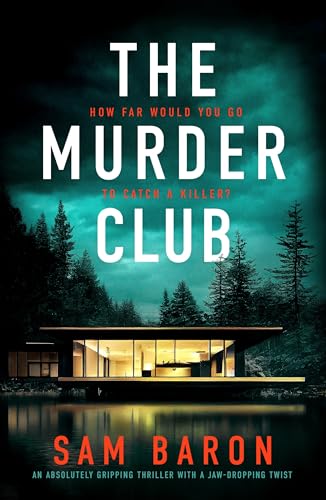
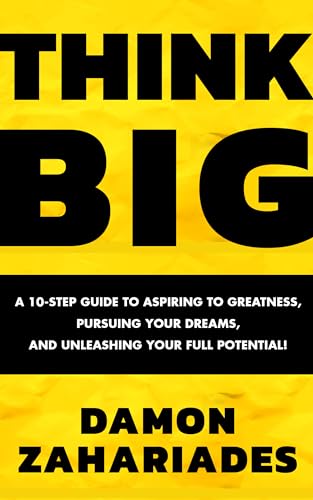

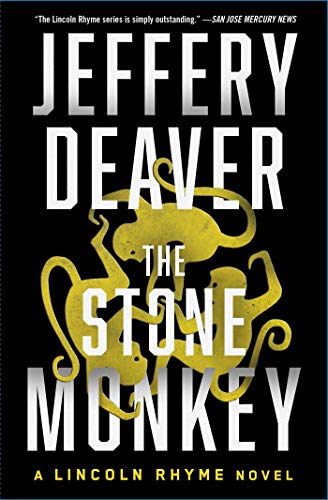


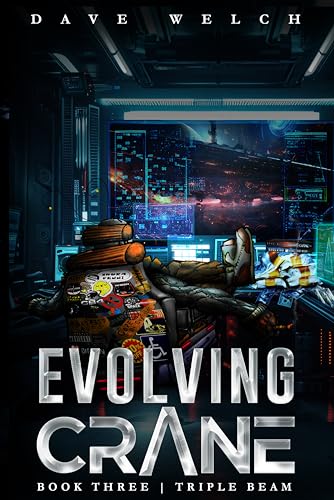
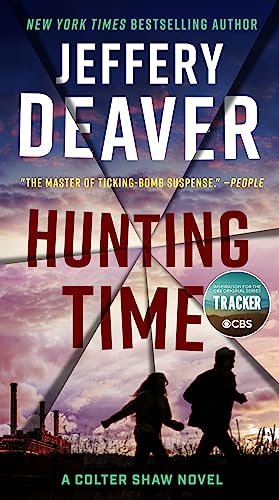

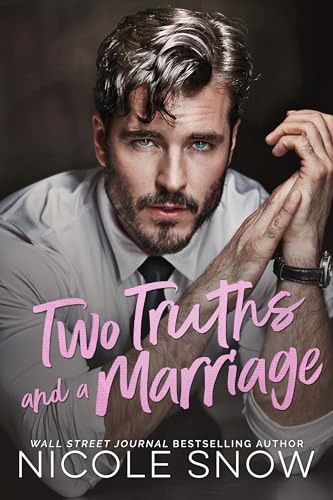

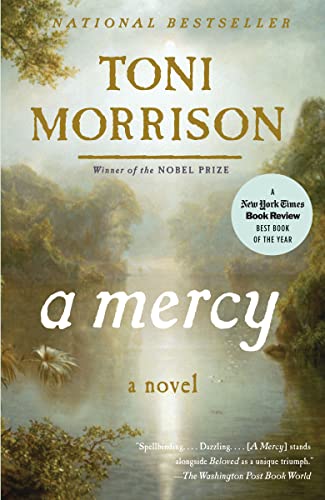






 Ann Gimpel is a clinical psychologist, with a Jungian bent. She's also a mountaineer and vagabond at heart. A lifelong aficionado of the unusual, she began writing speculative fiction on a bet. Since then her short fiction has appeared in a number of webzines, magazines, and anthologies. Her paranormal romance and urban fantasy novels are widely available in e-format and print. When she's not writing, she's skiing, hiking, or climbing with her husband and three wolf hybrids.
For a complete list of Ann's short stories, novellas, and novels go to her website at www.anngimpel.com and click the link on the home page.
Ann Gimpel is a clinical psychologist, with a Jungian bent. She's also a mountaineer and vagabond at heart. A lifelong aficionado of the unusual, she began writing speculative fiction on a bet. Since then her short fiction has appeared in a number of webzines, magazines, and anthologies. Her paranormal romance and urban fantasy novels are widely available in e-format and print. When she's not writing, she's skiing, hiking, or climbing with her husband and three wolf hybrids.
For a complete list of Ann's short stories, novellas, and novels go to her website at www.anngimpel.com and click the link on the home page.

